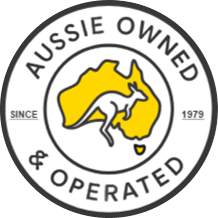- Get Extra
- Individuals
- Business
- Tools
- Tax Courses
- Contact
Tax Checklist for Office Workers
Monday, 4th September 2023
From car expenses to self-education, our basic checklist helps you uncover potential deductions that might have slipped under the radar. While we still recommend professional assistance, this checklist is your first step towards understanding what you can and cannot claim.
Car Expenses:
You can claim a deduction when you are travelling between separate workplaces (e.g. a second job or travelling to and from an alternate workplace for the same employer to attend a meeting at a different office). You need to keep a record of your work-related car expenses using the logbook or cents per kilometre methods.
Note: You can't claim the cost of normal trips between home and work, even if you are on-call or have to work outside normal business hours. This includes parking fees and tolls. If you salary sacrifice your car, this means your employer is covering the costs and you cannot claim a deduction.Home Office
Expenses:
You can claim a percentage of the running costs of your home office if you have to work from home, including depreciation of office equipment, work-related phone calls and internet access charges, and electricity for heating, cooling, and lighting costs. If you keep a diary of your home office usage, you can calculate your claim quickly using the home office expenses calculator.
Note: You generally can't claim the cost of rates, mortgage interest, rent, and insurance, unless the area of your home that you use for work is exclusively or almost exclusively used for work purposes and it isn't readily capable of being used for any other purpose.
Other Common Work Related Expenses:
You can claim a deduction for the cost of seminars and conferences, technical or professional publications, union and professional association fees.
Travel Expenses:
You can claim a deduction for travel expenses if you have to travel overnight from your usual work location (e.g. traveling to a remote area), provided the cost was incurred while carrying out your work duties. Travel expenses may include meals and accommodation, fares, petrol, and incidentals such as parking fees and tolls. Receiving a travel allowance from your employer does not automatically entitle you to a deduction. You still need to show that you were away overnight, you spent the money yourself, and the travel was directly related to earning your income (e.g. it was not a personal expense).
Clothing Expenses:
You can claim a deduction for the cost of buying, hiring, mending, or cleaning certain uniforms that are unique and distinctive to your job, or protective clothing that your employer requires you to wear. You can't claim a deduction for the cost of buying or cleaning plain clothing worn at work, even if your employer tells you to wear it (e.g. a business suit).
Self Education and Professional Development Expenses:
You can claim a deduction for self-education expenses if your course relates directly to your current job (e.g. human resource training for a manager). You can't claim a deduction if your study is only related in a general way or is designed to help get you a new job (e.g. a health and wellbeing course).
To Claim a Deduction for Work Related Expenses:
You can only claim the work-related part of expenses. You can't claim a deduction for any part of the expense that relates to personal use. You must have a record to prove it. You must have spent the money yourself and weren't reimbursed. It must be directly related to earning your income.
While this checklist can be a helpful starting point, your individual circumstances deserve personalised attention.
Book an appointment with our professionals to ensure you're squeezing every bit of value for your own unique needs. Book an appointment online or call our professionals on 1300 555 773. More power to you Queensland!

